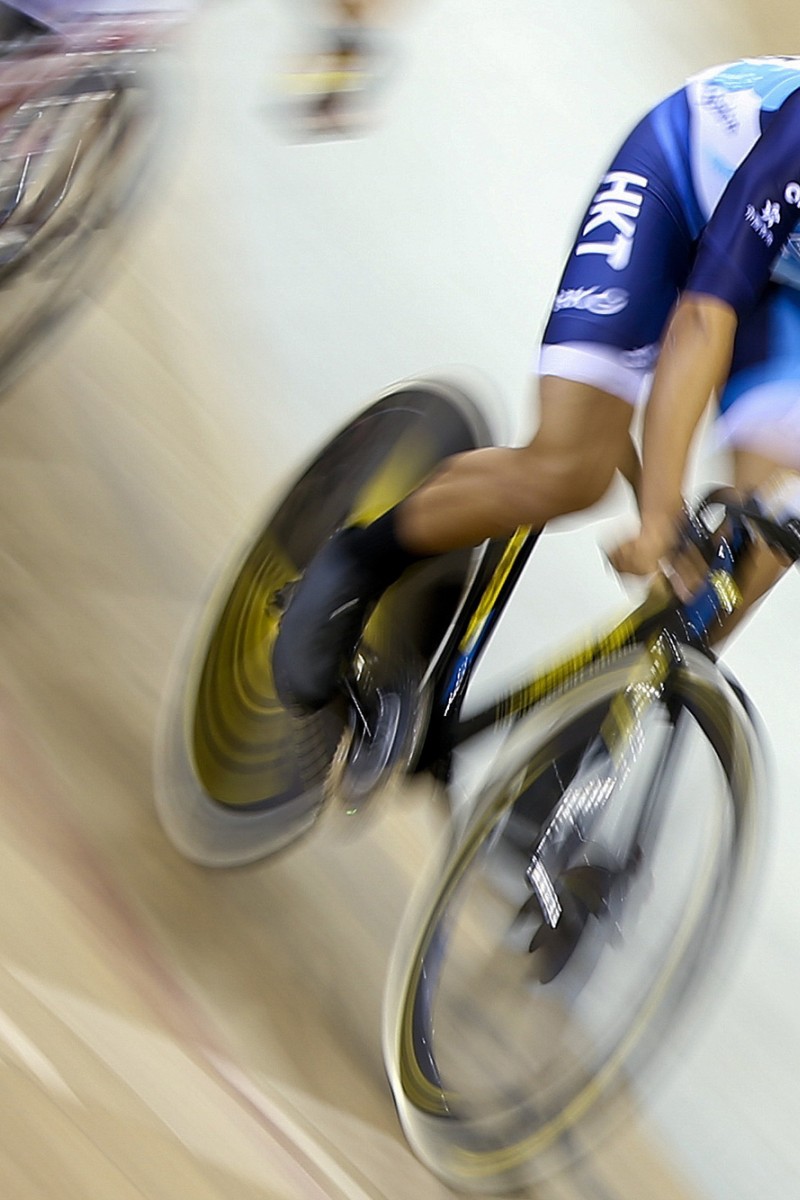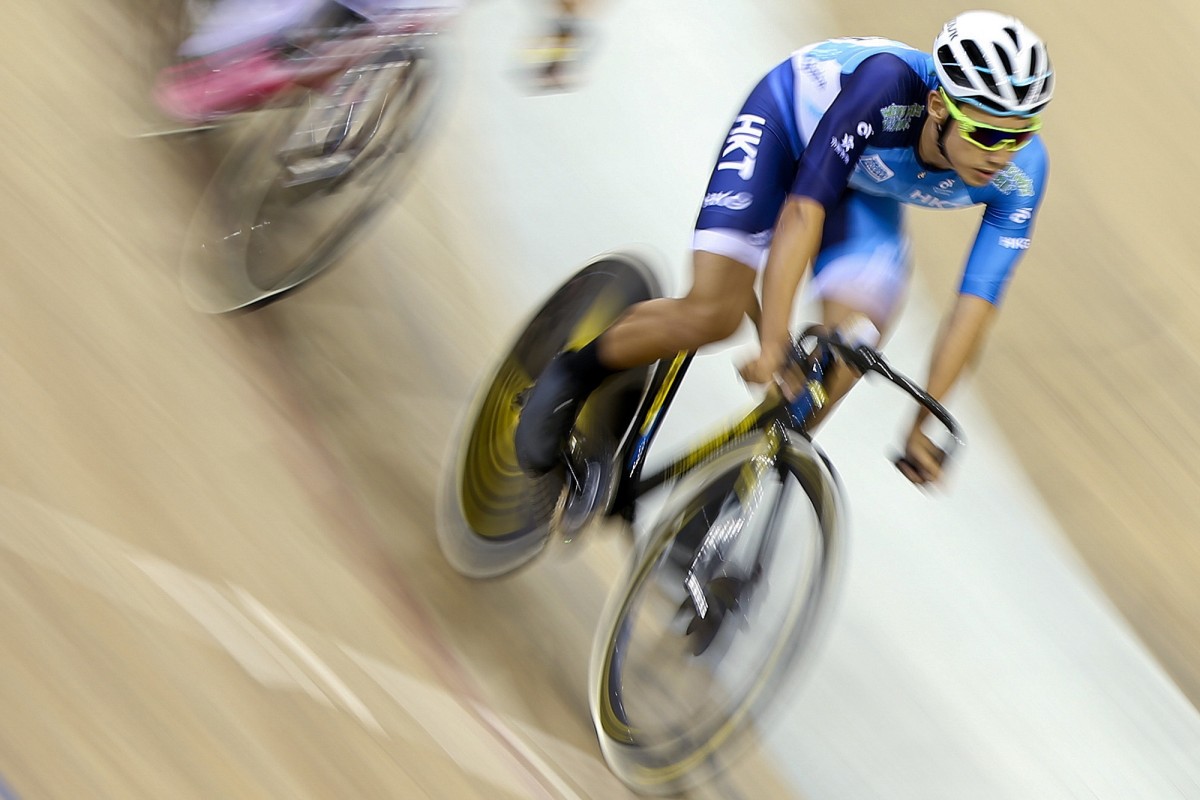
Hong Kong cycling sensation Leung Chun-wing has already competed at the Olympics and World Championships. He tells Ben Young why he believes in suffering to achieve his goals
 Leung Chun-wing’s ultimate goal is to compete at the Tokyo Olympics in 2020.
Leung Chun-wing’s ultimate goal is to compete at the Tokyo Olympics in 2020. Hong Kong’s star cyclist Leung Chun-wing believes he was born to be on a bike.
“I was born into a special family; my dad, my mum, my brother and even my sister, we all loved to cycle,” Leung told Young Post after the Hong Kong Jockey Club Athlete’s Award Scheme ceremony.
“I think cycling has been in my blood since I was born. It made it easy for me to get into the sport, and I think that’s why I’m so good at it.”
Leung has competed in the Olympics, World Championships, Asian Games and several other major events. And he’s coming off a gold-medal performance in men’s omnium at the National Games in Tianjin last month, which earned him a HK$300,000 cash award from the Jockey Club.
He appears to be entering his prime and, at just 23 years old, looks set to dominate Hong Kong’s cycling scene for several years. However, getting to where he is today was anything but easy.
While many consider cycling to be a fun and relaxing activity, Leung says professional cycling is completely different.
“I think [professional] cyclists are kind of crazy,” Leung said. “We always say cycling is not about how fast you can go, it’s about how much you can suffer. The more you can suffer, the stronger you will be.”
Leung, whose idol is Hong Kong cycling legend Wong Kam-po, gave insights into some of the gruelling training programmes he’s had to endure in order to become a champion.
“The hardest part is the sprinting exercises,” explained Leung. “Sometimes you have to do 20, 30 or even 40 sets of 100m sprints. Your legs hurt so much, but you have to keep going because you know it will help you get stronger.
“I think that’s one of the reasons I’m successful – I can take a lot of suffering.”
The suffering isn’t limited to physical pain; Leung said that cycling training has pushed him to the limit mentally.
“Our cycling team spends a lot of time training in China – we don’t train in the city, we train in the countryside where we have absolutely nothing around us,” Leung added. “As a young man, you want to play and live an exciting life, but when you look around and you see nothing but trees and roads, sometimes you ask yourself: ‘why are you doing this?’
“This is where my love for the sport becomes very important – I remind myself that this will help me achieve big things – then I can keep going during these tough training sessions.”
Leung said cyclists have to be very disciplined even when they’re not training – especially when it comes to diet.
“For cyclists, weight is very important. We have to keep the weight down and keep a certain muscle to fat ratio,” he said. “After a hard training session, we can’t just relax and have a big pizza or anything like that. Everything we eat is calculated.”
In conclusion, Leung said it was his heart and ambition that helped him become a champion.
“I think you can see that a lot of Hong Kong athletes are not the best in terms of size and physicality,” he said. “But we have the heart and the guts to win. That is the spirit of Hong Kong – and it is the most important thing in cycling.”
Leung offered some practical advice for aspiring young cyclists and athletes in Hong Kong.
“You must set targets, because without targets you never know where you’re going to go,” he said. “I set a four-year plan for myself – I will go to the China Games, Asian Games and finally my ultimate goal – the Tokyo Olympic Games.”